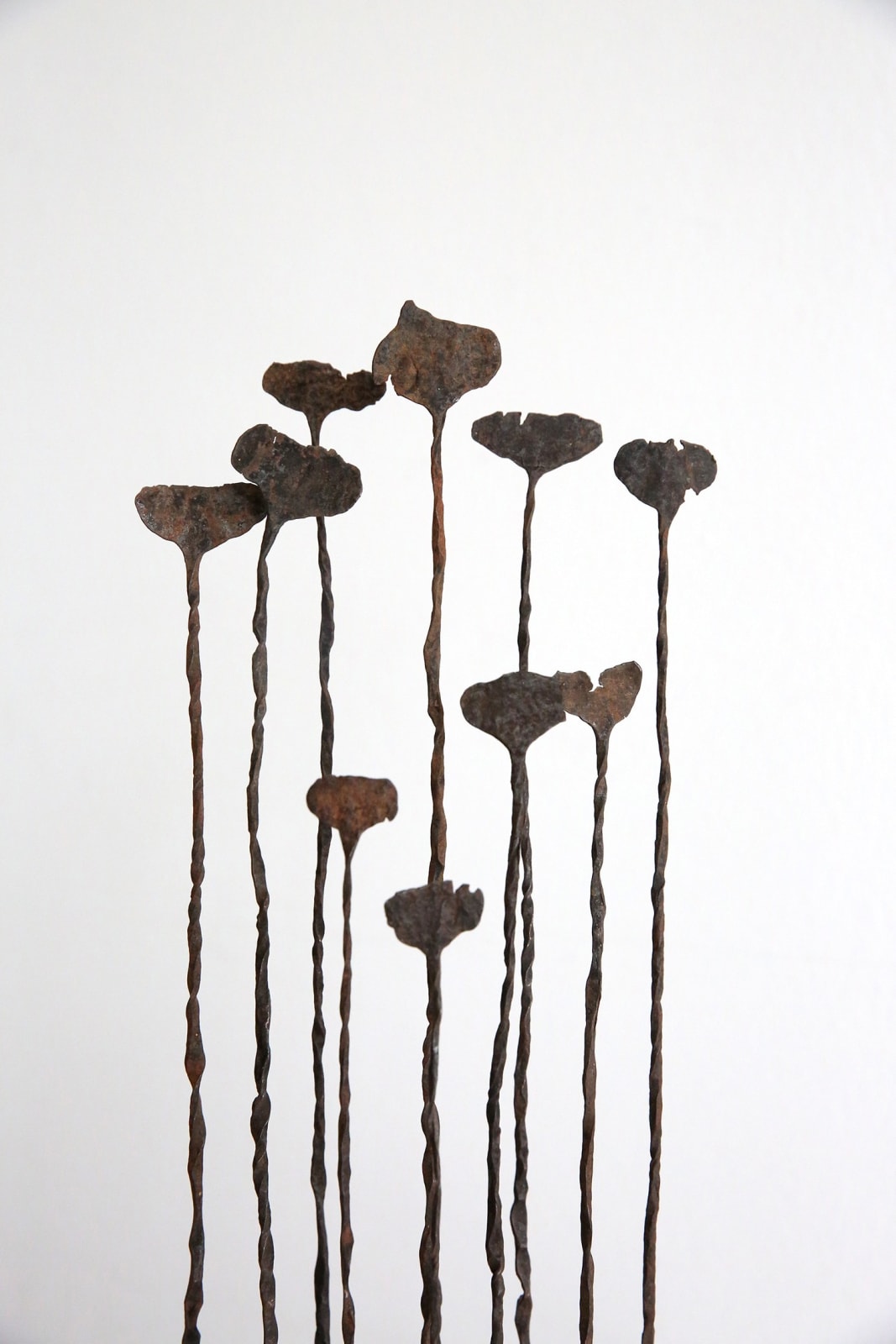Anonymous artist
Early 20th century
Iron. Various sizes
Further images
Kissi pennies are made from iron and take their name from the Kissi people of modern-day Liberia, Sierra Leone, and Guinea. Kissi pennies were made by smiths in the form of long rods, at one end was a rounded flat section called the head. At the other end, called the foot, the coin had two points that you could visualize as being real feet. They ranged in length from about 15 cm to as long as 40 cm. It is believed that the shape was intended to display the quality of the iron used to create them. The shape showed that the iron could be twisted, hammered, sharpened into a blade, and fashioned into points. Kissi pennies were primarily used in West Africa in the first half of the twentieth century. Individual Kissi pennies could be used to make small purchases, a score of oranges or a bunch of bananas could be bought for two. Because each one had relatively small value, they were often gathered into bundles (usually of 20). Prices compiled in the early twentieth century, for example put the cost of a cow at 100 bundles, while a bride price might be 200 bundles, and slaves could sell for 300 bundles. Kissi pennies were used until colonial powers discontinued their use as currency, but continued to hold significance in various religious ceremonies in some areas of the region, for example, as tokens of completing rituals in the Poro and Sande Societies; as bride wealth, and also to be placed on tombs and graves, where they were believed to channel the souls of the dead. At some point, the currency acquired spiritual aspects, perhaps because of its use in graves, and as a result, when a penny broke it was considered without value until it got repaired it in a special ceremony. It was this feature that led to it being called “money with a soul”. European travelers regarded them as a curious form of African money, and as a result many were collected and deposited in museums. The present group is presented upright on a custom-made base to create a small forest of money.
Provenance
Duende Art Projects, Antwerp, Belgium, 2023
let's keep in touch
Join our community & never miss out on a DUENDE moment from now on
* denotes required fields
We will process the personal data you have supplied to communicate with you in accordance with our Privacy Policy. You can unsubscribe or change your preferences at any time by clicking the link in our emails.









